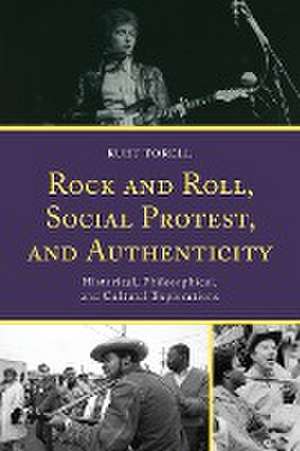Torell, K: Rock and Roll, Social Protest, and Authenticity: For the Record: Lexington Studies in Rock and Popular Music
Autor Kurt Torellen Limba Engleză Paperback – 21 aug 2023
Preț: 245.68 lei
Nou
Puncte Express: 369
Preț estimativ în valută:
47.03€ • 51.10$ • 39.53£
47.03€ • 51.10$ • 39.53£
Carte disponibilă
Livrare economică 31 martie-14 aprilie
Livrare express 15-21 martie pentru 22.56 lei
Preluare comenzi: 021 569.72.76
Specificații
ISBN-13: 9781793655653
ISBN-10: 1793655650
Pagini: 190
Dimensiuni: 152 x 229 x 10 mm
Greutate: 0.29 kg
Editura: Lexington Books
Seria For the Record: Lexington Studies in Rock and Popular Music
ISBN-10: 1793655650
Pagini: 190
Dimensiuni: 152 x 229 x 10 mm
Greutate: 0.29 kg
Editura: Lexington Books
Seria For the Record: Lexington Studies in Rock and Popular Music
Cuprins
Introduction: ¿But the Man Can¿t Bust Our Music¿ (Columbia Records Print Ad, 1968)
Chapter 1: The Nature and Origins of Rock and Roll
Chapter 2: The Influence of Records
Chapter 3: The Nature and Influence of Commercial Radio
Chapter 4: Copyright, ASCAP, BMI, and Payola
Chapter 5: The Folk ¿Revival¿
Chapter 6: Rock and Roll as Social Protest
Chapter 7: Authenticity and Social Protest
Chapter 8: Conclusion
References
Chapter 1: The Nature and Origins of Rock and Roll
Chapter 2: The Influence of Records
Chapter 3: The Nature and Influence of Commercial Radio
Chapter 4: Copyright, ASCAP, BMI, and Payola
Chapter 5: The Folk ¿Revival¿
Chapter 6: Rock and Roll as Social Protest
Chapter 7: Authenticity and Social Protest
Chapter 8: Conclusion
References













